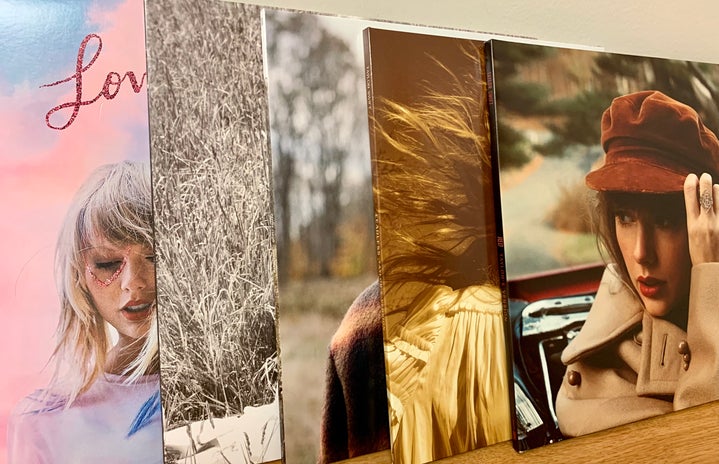17 years ago, when Taylor Swift was 16 and releasing her first album, it was met with criticism for her having “only” written about her ex-boyfriends. She was then criticized for not writing her own songs at age 19. Now, at age 32, she is still being met with these false criticisms. Taylor Swift has been in the music industry for nearly 20 years, and all throughout those years, she has dealt with people—particularly men—disapproving of her work.
It doesn’t matter if you like or dislike her music, you cannot discredit her songwriting and impact on the music industry—which is exactly what Damon Albarn, a singer and musician, did near the end of January.
In a Los Angeles Times article, Albarn claimed that Swift “doesn’t write her own songs.” After the interviewer tried to defend Swift, he doubled down and said that “co-writing is very different to writing” and “there’s a big difference between a songwriter and a songwriter who co-writes.” He then praised Billie Eilish and her brother (who co-write together) for their “darker” songs whereas Swift’s songs are “endlessly upbeat.” This is just another example of people not only criticizing a successful woman in the music industry but also pitting successful women in the music industry against each other for no reason.
Though these comments have the potential to be damaging to her career, Swift has never backed down when receiving these criticisms and retaliates on Twitter or even in her songs.
When Damon Albarn made his unfounded comments, she took to Twitter to say “I write ALL of my own songs. Your hot take is completely false and SO damaging” and even included, cheekily, “PS I wrote this tweet all by myself in case you were wondering.” Many other prominent people within the music industry including Swift’s collaborators Jack Antanoff and Aaron Dessner publicly defended her and disagreed with Albarn.
After her first two albums were released and were met with criticism that she does not write her own songs, Swift released Speak Now: with her being the sole songwriter on all 14 songs on the album.
It is extremely disappointing, after all of Swift’s acclaim and success, that she continues to receive harsh criticisms based on false claims about her music and process. There is not a single song in her discography that she is not credited as a songwriter. She has written about 50 songs completely on her own—and yet she is still being criticized for not writing her own songs.
Is Taylor Swift perfect? No, no one is. But people making false claims and unnecessarily criticizing arguably the most famous and successful woman in music is ridiculous. We need to examine why we live in a society that tears down successful women when we should be building them up.
Those who claim that her songs are “endlessly upbeat” (another phrase penned by Albarn) should listen to “Sad Beautiful Tragic,” “Nothing New,” and “My Tears Ricochet.” Those who claim all of her songs are about her exes should listen to “Fifteen,” “The Best Day,” and “Never Grow Up.” Not only do all of these songs disprove these claims, but they were also all written by Taylor Swift, by herself, disproving the claim that she does not write her own songs.


